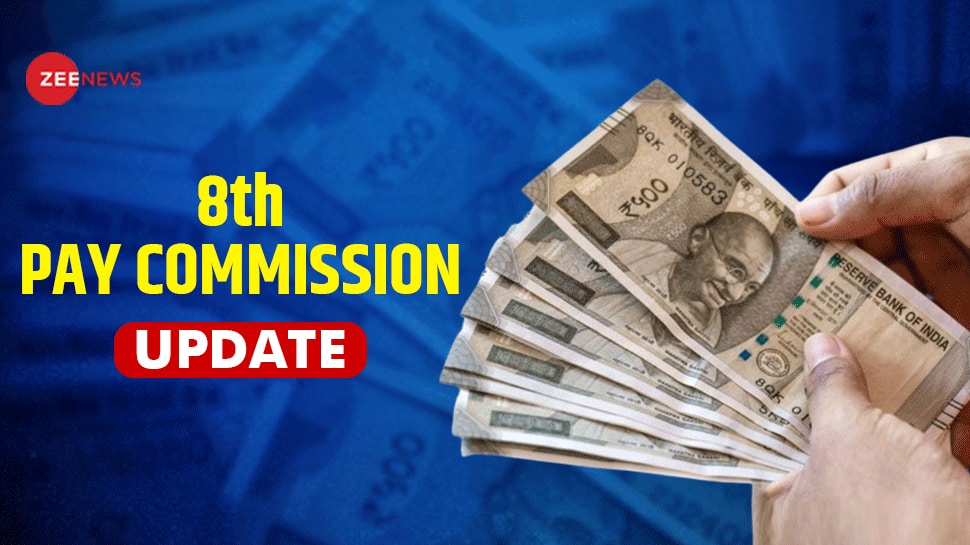Business
PSX climbs past 163,000 for the first time in history – SUCH TV

The Pakistan Stock Exchange (PSX) on Monday extended its bullish momentum at the start of a new business week to reach another all-time high as economic and geopolitical developments boosted investors’ confidence.
As trading underway, the PSX’s benchmark KSE-100 index gained 854.18 points to climb to all-time high of 163,111.18 points, marking a change of 0.53 percent.
But later profit-taking set in forcing the index to lose over 400 points to reach 162,726.32 points or 0.29 percent before noon.
Share prices of 448 companies were traded so far, out of which 264 witnessed gains and 165 losses, while 19 remained unchanged.
Experts said the recent cordial meeting between Pakistan’s civil-military leadership and US President Donald Trump has sparked positive sentiments among investors.
Furthermore, the successful resolution of Rs1,225 billion power sector circular debt has provided as a decisive step towards fiscal discipline, investor confidence through collective efforts.
This historic joint effort was led by the Prime Minister’s Task Force on Power in coordination with the Ministry of Energy, the State Bank of Pakistan, the Pakistan Banks Association, and 18 partner banks.
This landmark restructuring represented a major breakthrough in addressing one of the most chronic challenges to Pakistan’s energy sector.
On Friday, the 100-index of the Pakistan Stock Exchange (PSX) had gained 2,976.92 points, an increase of 1.87 percent, closing at 162,257.01 points.
A total of 1,714,917,163 shares valuing Rs70.744 billion were traded during the day as compared to 1,673,571,032 shares valuing Rs. 55.278 billion on the last trading day.
As many as 484 companies transacted their shares in the stock market; 228 recorded gains and 230 sustained losses, whereas the share prices of 26 remained unchanged.
The three top trading companies were WorldCall Telecom with 450,584,981 shares at Rs.1.85 per share, followed by K-Electric Limited with 112,632,537 shares at Rs.7.13 per share, and Cnergyico PK with 73,630,584 shares at Rs.8.81 per share.
The top gainers were Rafhan Maize Products Company Limited, share prices of which increased by Rs.911.15 to close at Rs.10,506.10, and Sapphire Textile Mills Limited, which rose by Rs.128.91 to close at Rs.1,422.08.
The major losers were PIA Holding Company LimitedB, which declined by Rs.1,353.22 to close at Rs.26,689.60, and Unilever Pakistan Foods Limited, which fell by Rs.148.99 to close at Rs.32,308.01.
In the futures market, 633,777,000 shares were traded as compared to 557,601,500 shares on the previous trading day, while the total value stood at Rs.35.935 billion against Rs. 27.119 billion previously.
Business
Housebuilders in focus as firms set to reveal figures amid sluggish market

Housebuilding giants will be centre stage next week as Persimmon, Vistry and Taylor Wimpey publish trading updates that are expected to offer a fresh snapshot of the UK housing market.
The updates will be closely watched by Government ministers, who have pledged to accelerate housebuilding, and by investors looking for signs of recovery and the Budget’s impact on the housing market as the UK heads into 2026.
Persimmon is due to publish a full-year trading statement on Tuesday, while Vistry will announce its fourth quarter trading statement on Wednesday and Taylor Wimpey a trading statement on Thursday.
UK housebuilding activity has remained in its deepest slump since the start of the pandemic, while the wider construction sector has been in contraction for a year, according to the latest S&P Global UK construction purchasing managers’ index (PMI) published on Wednesday.
The index rose slightly to 40.1 in December from 39.4 in November, remaining well below the 50-point level that signals growth, marking the 12th consecutive month of declining activity.
Survey respondents cited fragile confidence, weak demand and clients delaying decisions ahead of the autumn budget.
Richard Hunter, head of markets at interactive investor, said Persimmon “has been hamstrung by the wider factors over which it has little influence, including but not limited to a faltering domestic economy”.
However, Aarin Chiekrie, an equity analyst at Hargreaves Lansdown, highlighted that Persimmon’s homes are typically valued around 15% below the new-build national average, which “offers some resilience to ride current market challenges” and should provide some relief on building cost pressures.
Meanwhile Vistry, formerly Bovis Homes, has benefited from supportive government policy towards affordable housing, with average weekly sales rates rising by 11% between July and early November compared to the previous year, according to Hargreaves Lansdown.
On Friday, figures release by HMRC revealed UK house sales were 8% higher in November than a year earlier, with around 100,350 homes changing hands, an indication of some optimism in the market.
Jason Tebb, president of OnTheMarket, said: “With the budget done and dusted, uncertainty at least has been removed and those who put their moves on pause are returning to the market, encouraged by lower mortgage rates from some of the big lenders, with others expected to follow.
“As January progresses, well-priced homes continue to attract interest.”
Business
US job creation in 2025 slows to weakest since Covid

The number of jobs created in the US grew only modestly in December, as a weak year for the employment market in the world’s largest economy drew to a close.
Employers added 50,000 jobs in the final month of 2025, according to Labor Department data, which was fewer than expected. But the unemployment rate dipped to 4.4%.
Job gains last year were the smallest since 2020, when the Covid pandemic led to widespread cuts.
Businesses have been operating in an environment marked by US President Donald Trump’s dramatic policy changes, including tariffs, an immigration crackdown and cuts to government spending.
The US economy has held up in the face of these shifts, growing at an annual rate of 4.3% over the three months to September.
But the expansion – driven by steady consumer spending and a growth in exports – has not been accompanied by significant job creation.
On average, the US added just 49,000 roles per month in 2025, down from an estimated gain of two million a month the year before.
The Labor Department said the US also added 76,000 fewer new positions in October and November than previously estimated.
Retailers and manufacturers were among the sectors reporting losses last month, which were offset by hiring at health care employers, bars and restaurants.
The data underscores the mixed dynamics facing job-seekers in the US, where hiring has cooled markedly over the last year but fears of mass layoffs have not materialised.
The US Federal Reserve central bank has responded to the slowdown by cutting its key lending rate in hopes of giving the economy a boost, despite concerns that inflation is still bubbling.
But the central bank is divided about how much lower borrowing costs should go.
Analysts said the latest figures – which showed the jobless rate recovering to the 4.4% level where it stood in September – would do little to resolve those debates.
“Today’s report confirms what we think has been evident for some time—the labor market is no longer working in favour of job seekers,” said Ellen Zentner, chief economic strategist for Morgan Stanley Wealth Management.
But she added: “Until the data provide a clearer direction, a divided Fed is likely to stay that way. Lower rates are likely coming this year, but the markets may have to be patient.”
Business
Tara Sutaria’s Car Collection: Her Garage Worth Crores Will Leave You Shocked – Have A Look

Tara Sutaria, the Bollywood star known for films like Student of the Year 2 and Marjaavaan, has built a strong career since her 2019 debut. She has steadily increased her earnings through films, brand endorsements, and other projects. As of 2025, her net worth is reportedly around Rs 25 crore (about $ 3 million USD).
She became well-known after her debut in Student of the Year 2 (2019) and later appeared in films such as Marjaavaan, Heropanti 2, and Ek Villain Returns. In addition to movies, Tara also earns from brand deals, public appearances, and her presence on social media.
Income Sources
Most of Tara’s wealth comes from her film salaries and endorsement deals. She reportedly earns around Rs 1–3 crore per film role, depending on the project. Endorsements also add significantly to her earnings, with deals for beauty, fashion, and lifestyle brands.
Her annual income is estimated to be several crores of rupees, which has earned her popularity in the Bollywood industry.
Luxury Home in Mumbai
Alongside her earnings, Tara owns a luxury apartment in the upscale Pali Hill area of Mumbai. The neighborhood is known for its premium homes and celebrity residents.
(Also Read: Tara Sutaria-Veer Pahariya Break-Up Buzz: What We know So Far)
Car Collection
Tara’s car collection is one of the most discussed topics about her. During public appearances and airport visits, these luxurious cars have been captured on camera:

- Mercedes-Benz GLS – a luxury SUV worth over Rs 1 crore.
- Audi Q3 – a compact luxury SUV valued at around Rs 35 lakh.
- She also reportedly owns a BMW X3 and Honda CR-V in her garage.
Lifestyle and Public Image
Tara Sutaria maintains a lifestyle that combines work and leisure. She often shares glimpses of her travels, fashion moments, and personal experiences on social media.
Recent Concert Controversy
She recently grabbed headlines after a moment at AP Dhillon’s Mumbai concert turned into a big drama. She joined the singer on stage for a performance, sharing hugs and smiles that went viral. Social media clips showed the unhappy face of her boyfriend Veer Pahariya who watched from the crowd. Fans wondered about that concert moment and shared thousands of reactions about her relationship.
Tara quickly cleared the air. She called out fake PR tricks trying to ruin her image and confirmed that there is nothing like the buzz spread on social media platforms. (Image Credits: Instagram/tarasutaria)
-

 Politics4 days ago
Politics4 days agoChina’s birth-rate push sputters as couples stay child-free
-

 Sports4 days ago
Sports4 days agoVAR review: Why was Wirtz onside in Premier League, offside in Europe?
-

 Entertainment2 days ago
Entertainment2 days agoDoes new US food pyramid put too much steak on your plate?
-

 Entertainment4 days ago
Entertainment4 days agoMinnesota Governor Tim Walz to drop out of 2026 race, official confirmation expected soon
-

 Sports4 days ago
Sports4 days agoSteelers escape Ravens’ late push, win AFC North title
-

 Business4 days ago
Business4 days agoAldi’s Christmas sales rise to £1.65bn
-

 Sports5 days ago
Sports5 days agoFACI invites applications for 2026 chess development project | The Express Tribune
-

 Business4 days ago
Business4 days ago8th Pay Commission: From Policy Review, Cabinet Approval To Implementation –Key Stages Explained












